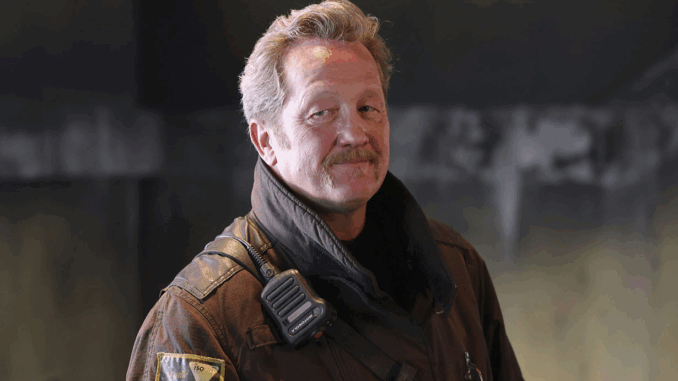
A near-fatal blow that shook Firehouse 51
When Mouch collapsed during the dramatic Season 11 finale, fans feared the worst. The long-serving firefighter, known for his wit, warmth, and unwavering loyalty, was left unconscious as sirens wailed in the background. It was a rare, gut-wrenching moment for Chicago Fire—one that made viewers realize just how much Mouch meant to the show’s emotional backbone.
Season 13 picks up with the aftermath of that cliffhanger, and instead of brushing it off with a miracle recovery, the series leans into the weight of the moment. Mouch’s survival wasn’t just a plot device—it became a catalyst for one of his most profound character arcs yet.
Facing mortality with courage—and sarcasm
Mouch, played masterfully by Christian Stolte, has always used humor as armor. But this season, even his best punchlines can’t hide the fear he’s grappling with. For the first time, he’s questioning whether he still belongs in the line of fire—both literally and metaphorically.
Throughout Season 13, we see him struggle to return to duty. He hesitates during training drills. He flinches at the sound of alarms. There’s a crack in his confidence that wasn’t there before. And yet, Chicago Fire doesn’t let his vulnerability define him—it lets it deepen him.
This is no longer just the “old-timer” at the house cracking jokes in the common room. This is a man reckoning with what it means to outlive your limits—and still choose to serve.
Brotherhood and belief: Firehouse 51 has his back

One of the most touching threads this season is how the rest of 51 rallies around Mouch. Herrmann becomes his fiercest protector, even pulling rank when necessary to make sure Mouch isn’t pushed too hard, too fast. Cruz offers quiet encouragement. Kidd steps in with no-nonsense support. Even Severide, usually stoic, shares a few grounding words that show just how much Mouch matters.
This sense of camaraderie reinforces what Chicago Fire does best—showing that strength isn’t just physical. It’s emotional. It’s communal. And Mouch, despite his fears, continues to show up, proving that resilience isn’t about ignoring pain—it’s about pushing through it.
Adapting, not retreating
Instead of forcing Mouch back into full firefighter mode immediately, the writers smartly give him room to explore new roles. He spends more time mentoring the newer recruits. He gets involved in community outreach programs, reminding the public—and himself—how vital every part of the job is.
There’s even a powerful moment when he considers early retirement, but ultimately chooses to stay, not out of stubbornness, but because he knows he still has more to give. It’s one of the most honest portrayals of aging in a high-risk profession the show has ever done.
Legacy, loyalty, and looking forward
Mouch’s arc in Season 13 is more than a recovery story. It’s a statement. He may not be the fastest or the strongest, but he’s the heart of Firehouse 51—and that heart beats louder than ever after nearly stopping.
As the season builds toward its finale, it’s clear that Mouch’s role is evolving. He may spend less time in burning buildings, but his impact on those who do has never been greater. His journey is a reminder that every firefighter, young or old, carries more than tools—they carry history, lessons, and love for the job.
Mouch is still here. Still laughing. Still fighting. And fans wouldn’t have it any other way.